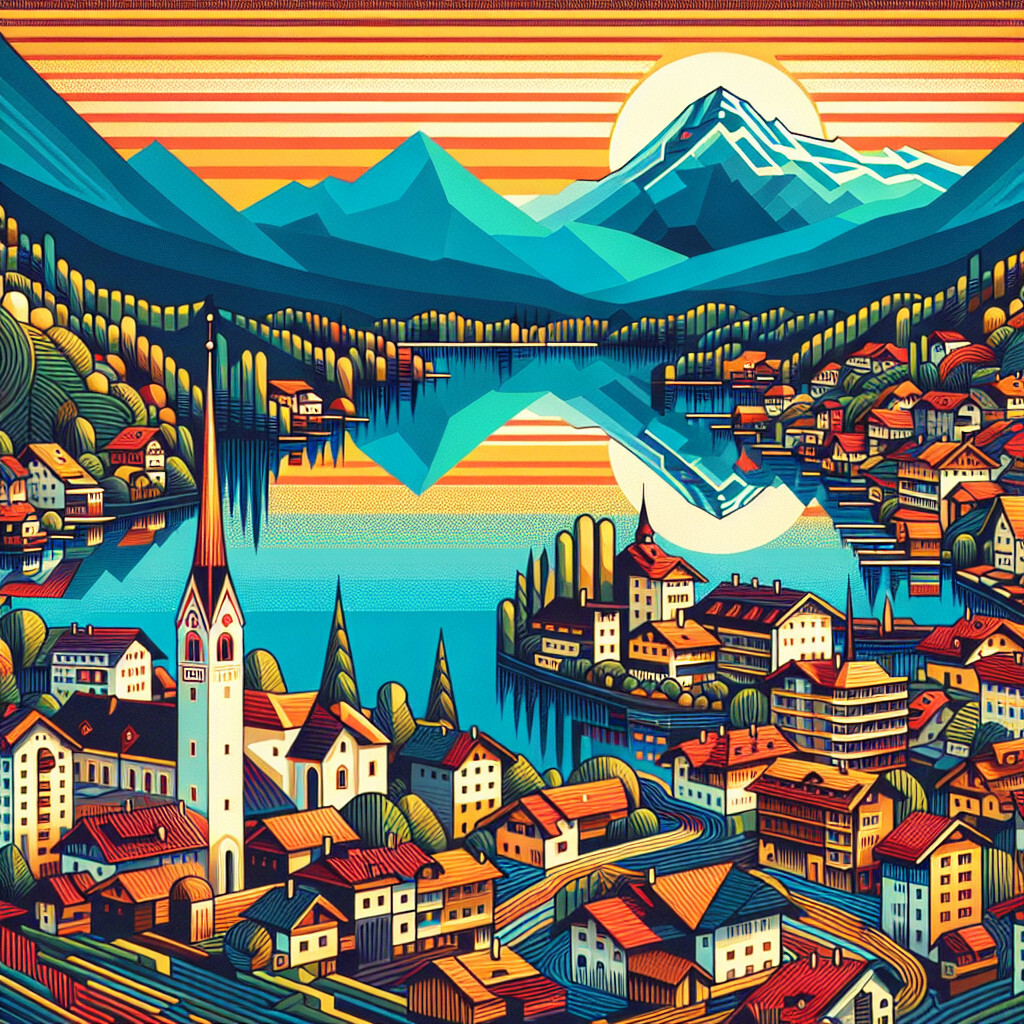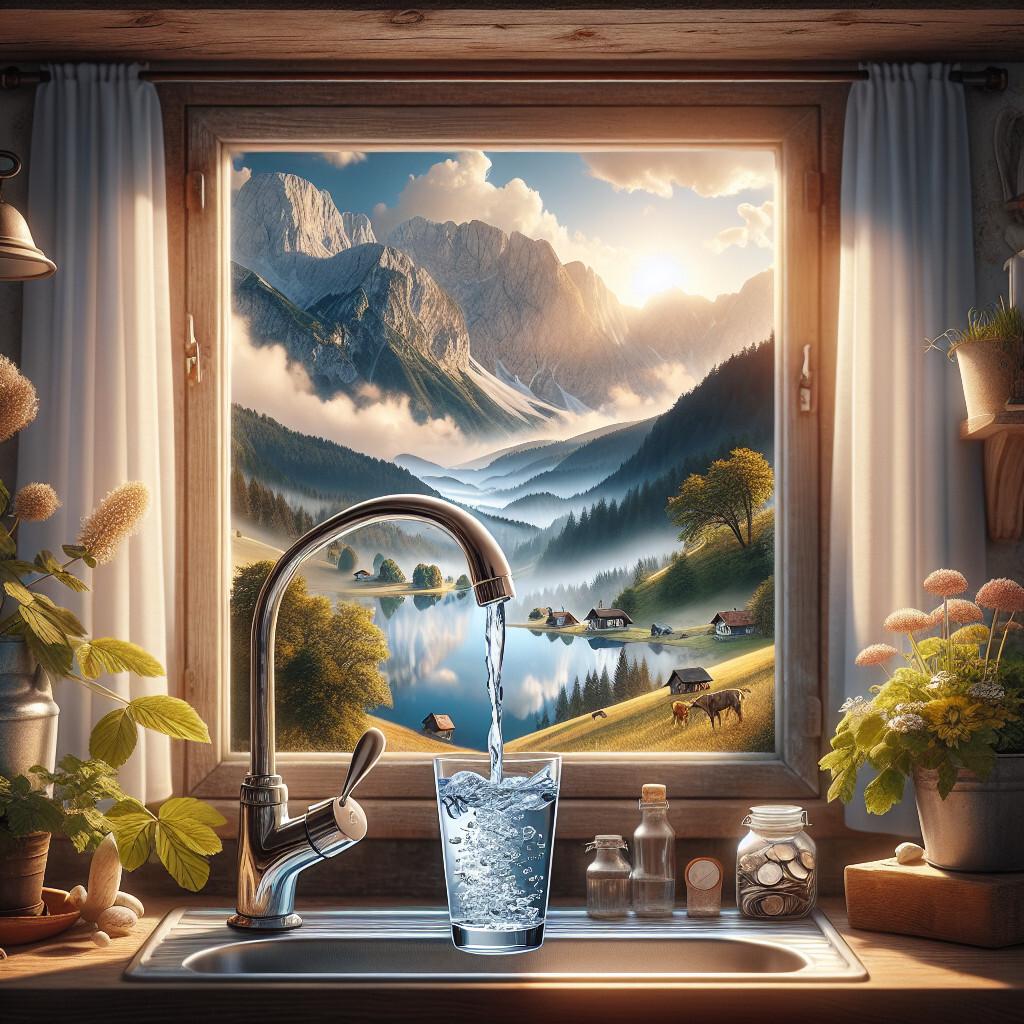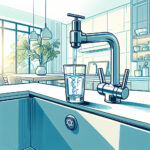-
Table of Contents
“Slovenia’s Tap Water: Pristine, Pure, and Perfectly Drinkable!”
Introduction

The tap water in Slovenia is known for its high quality and safety for consumption. It is sourced from natural springs and underground water sources, undergoing strict regular testing to ensure it meets all health standards. Slovenia’s tap water is not only safe to drink but also has a fresh and clean taste. The country’s commitment to environmental sustainability further ensures the purity of its water supply.
Understanding the Quality of Tap Water in Slovenia
Slovenia, a small yet picturesque country nestled in the heart of Europe, is renowned for its diverse landscapes, rich cultural heritage, and pristine natural resources. Among these resources, one that stands out is the country’s tap water. Slovenia’s tap water is not only safe to drink but is also considered among the best in the world. This high quality is a result of the country’s stringent water management policies, advanced purification processes, and the natural purity of its water sources.
Slovenia is blessed with abundant water resources, including numerous rivers, lakes, and underground water reserves. These natural water sources are remarkably clean due to the country’s low population density and minimal industrial pollution. Moreover, Slovenia’s geographical location, with the Alps to the north and the Adriatic Sea to the south, contributes to the high quality of its water. The country’s alpine regions are home to vast reserves of glacial water, which is naturally filtered through layers of rock and soil, resulting in exceptionally pure and mineral-rich water.
However, the natural purity of Slovenia’s water sources is only part of the story. The country also has a robust water management system in place to ensure the quality and safety of its tap water. Slovenia’s water supply is regulated by the Slovenian Environment Agency, which sets strict standards for water quality and regularly monitors the country’s water sources and supply networks. The agency conducts comprehensive tests to check for various parameters, including pH levels, hardness, and the presence of harmful substances such as heavy metals and bacteria. The results of these tests are publicly available, providing transparency and reassurance to consumers.
In addition to regulatory oversight, Slovenia also employs advanced water treatment processes to purify its tap water. The country’s water treatment plants use a combination of physical, chemical, and biological methods to remove impurities and disinfect the water. These methods include coagulation and flocculation, sedimentation, filtration, and disinfection. The end product is crystal-clear, odorless, and tasteless water that meets or exceeds international standards for drinking water quality.
Despite the high quality of Slovenia’s tap water, some people may still prefer to drink bottled water due to personal preferences or misconceptions about tap water. However, it’s worth noting that bottled water is not only more expensive but also has a higher environmental impact due to the production and disposal of plastic bottles. On the other hand, drinking tap water is a more sustainable choice as it reduces plastic waste and carbon emissions associated with the transportation of bottled water.
In conclusion, the tap water in Slovenia is of exceptional quality, thanks to the country’s pristine natural water sources, stringent regulatory standards, and advanced water treatment processes. It is safe, clean, and perfectly suitable for drinking straight from the tap. So, the next time you find yourself in Slovenia, feel free to fill your glass from the tap and enjoy some of the best water the world has to offer.
The Process of Water Purification in Slovenia: A Deep Dive
Slovenia, a small yet picturesque country nestled in the heart of Europe, is renowned for its diverse landscapes, rich cultural heritage, and pristine natural resources. Among these resources, one of the most vital is water. Slovenia is blessed with an abundance of freshwater resources, and the quality of tap water in the country is a testament to this. The process of water purification in Slovenia is a fascinating journey that ensures the delivery of clean, safe, and refreshing tap water to every household.
The journey of water purification in Slovenia begins with the collection of water from natural sources. Slovenia is home to numerous rivers, lakes, and underground water sources, which provide a steady supply of freshwater. The water collected from these sources is raw and untreated, containing various impurities such as sediments, microorganisms, and other contaminants. Therefore, it is crucial to purify this water before it is deemed safe for consumption.
The first step in the purification process is coagulation and flocculation. This involves the addition of chemicals to the water, which bind with the impurities to form larger particles known as flocs. These flocs are then removed from the water through a process called sedimentation, where they settle at the bottom due to their increased weight.
Following sedimentation, the water undergoes filtration, which is a critical step in the purification process. The water is passed through layers of fine sand and gravel, which trap and remove any remaining particles. This process not only removes physical impurities but also helps in eliminating bacteria and other harmful microorganisms.
After filtration, the water is disinfected to kill any remaining pathogens. This is typically done using chlorine or ultraviolet light. The disinfection process ensures that the water is free from harmful microorganisms, making it safe for consumption.
Once the water has been purified, it is tested rigorously to ensure its quality and safety. The Slovenian Institute for Public Health and other regulatory bodies conduct regular checks on the water supply, testing for various parameters such as pH, hardness, and the presence of any harmful substances. The water is only distributed to households once it meets the stringent quality standards set by these bodies.
The tap water in Slovenia is not only safe to drink but is also of high quality. It is often compared to bottled water in terms of its taste and purity. This is a testament to the effectiveness of the water purification process in the country. Moreover, the use of tap water is encouraged in Slovenia as it is a more sustainable and environmentally friendly option compared to bottled water.
In conclusion, the process of water purification in Slovenia is a comprehensive and rigorous one, ensuring the delivery of clean, safe, and high-quality tap water to every household. It involves multiple stages of treatment, each designed to remove specific types of impurities, and rigorous testing to ensure the water’s safety and quality. The result is tap water that is not only safe to drink but also tastes as good as bottled water, making Slovenia a country where you can quench your thirst straight from the tap.
Health Implications of Drinking Tap Water in Slovenia
Slovenia, a small yet picturesque country nestled in the heart of Europe, is renowned for its diverse landscapes, rich cultural heritage, and pristine natural resources. Among these resources, one that stands out is the country’s tap water. Slovenia is one of the few countries globally where tap water is not only safe to drink but is also of exceptional quality. This article will delve into the health implications of drinking tap water in Slovenia, providing an informative and formal exploration of this topic.
Slovenia’s tap water is sourced from natural springs and underground water reserves, which are meticulously protected to ensure their purity. The country’s stringent environmental policies and advanced water treatment processes play a crucial role in maintaining the high quality of its tap water. These measures ensure that the water is free from harmful contaminants, such as heavy metals, bacteria, and viruses, which can pose serious health risks.
Drinking tap water in Slovenia is not only safe but also beneficial to health. The water is rich in essential minerals like calcium, magnesium, and potassium, which are vital for various bodily functions. Calcium is crucial for bone health, magnesium aids in nerve and muscle function, and potassium helps regulate fluid balance and blood pressure. Thus, consuming Slovenia’s tap water can contribute to meeting the daily recommended intake of these minerals.
Moreover, the tap water in Slovenia is devoid of chlorine, a common disinfectant used in many countries to kill bacteria and other microbes. While chlorine effectively purifies water, its residual presence in drinking water has been linked to several health issues, including respiratory problems and an increased risk of certain cancers. The absence of chlorine in Slovenia’s tap water eliminates these potential health risks, making it a healthier choice.
The quality of Slovenia’s tap water also has implications for the country’s public health. The widespread availability of clean, safe drinking water reduces the incidence of waterborne diseases, contributing to the overall health and wellbeing of the population. Furthermore, the high quality of tap water encourages people to choose it over bottled water, reducing plastic waste and promoting environmental sustainability.
However, it’s important to note that while Slovenia’s tap water is generally safe to drink, there may be variations in quality in different parts of the country. In some rural areas, for instance, the water may contain higher levels of certain minerals due to the local geology. While these minerals are not harmful in moderate amounts, excessive consumption can lead to health issues. Therefore, it’s advisable for residents and visitors to check the local water quality reports or consult with health professionals if they have specific health concerns.
In conclusion, the tap water in Slovenia is of exceptional quality, making it not only safe to drink but also beneficial to health. The country’s rigorous environmental policies and advanced water treatment processes ensure the water’s purity, while its rich mineral content contributes to overall health. However, as with any natural resource, it’s important to consume it responsibly and be aware of any potential variations in quality. With these considerations in mind, one can confidently enjoy Slovenia’s tap water, appreciating it as a testament to the country’s commitment to environmental sustainability and public health.
Slovenia’s Tap Water: A Comparative Study with Other European Countries
Slovenia, a small yet picturesque country nestled in the heart of Europe, is renowned for its diverse landscapes, rich cultural heritage, and pristine natural resources. Among these resources, one that stands out is Slovenia’s tap water. Often overlooked, the quality of tap water is a crucial determinant of a country’s public health and environmental sustainability. In Slovenia, the tap water is not just a basic necessity but a symbol of the nation’s commitment to preserving its natural wealth.
Slovenia’s tap water is considered among the best in Europe, a testament to the country’s rigorous water management practices. The water is sourced from natural springs and underground reservoirs, which are abundant in the country due to its diverse geological formations. This natural filtration process ensures that the water is free from harmful contaminants and rich in essential minerals.
The quality of Slovenia’s tap water is strictly regulated by the Slovenian Institute for Water, which conducts regular tests to ensure that the water meets the highest safety and quality standards. These standards are in line with the European Union’s Drinking Water Directive, which sets stringent criteria for water quality across member states. The results of these tests are publicly available, providing transparency and reassurance to consumers about the safety of their tap water.
In comparison to other European countries, Slovenia’s tap water stands out for its exceptional quality. For instance, in countries like the United Kingdom and Germany, tap water is generally safe to drink but often requires additional treatment to remove chemicals used in the water purification process. In contrast, Slovenia’s tap water is naturally pure and requires minimal treatment, making it not only safer but also more environmentally friendly.
Moreover, Slovenia’s tap water is not just safe to drink but also tastes good. This is in stark contrast to countries like Spain and Italy, where the tap water is often described as having an unpleasant taste due to the high chlorine content. In Slovenia, the water is naturally soft, which means it has a low mineral content and a fresh, clean taste. This makes it ideal for drinking straight from the tap, cooking, and even brewing coffee or tea.
The quality of Slovenia’s tap water is also reflected in the country’s low bottled water consumption. While in many European countries, people prefer to drink bottled water due to concerns about tap water quality, in Slovenia, the situation is quite different. The excellent quality and taste of the tap water have led to a decline in the consumption of bottled water, contributing to a reduction in plastic waste and promoting environmental sustainability.
In conclusion, Slovenia’s tap water is a shining example of the country’s commitment to preserving its natural resources and promoting public health. Its exceptional quality, taste, and environmental benefits set it apart from other European countries, making it a source of national pride. So, the next time you find yourself in Slovenia, don’t hesitate to fill your glass straight from the tap. You’ll be enjoying some of the best water Europe has to offer, while also contributing to the country’s environmental sustainability efforts.
Q&A
1. Question: Is tap water in Slovenia safe to drink?
Answer: Yes, tap water in Slovenia is safe to drink. It is well-regulated and undergoes strict quality control.
2. Question: How is the taste of tap water in Slovenia?
Answer: The taste of tap water in Slovenia is generally considered fresh and clean, as it comes from natural sources like springs and wells.
3. Question: Is bottled water more popular than tap water in Slovenia?
Answer: No, tap water is widely consumed in Slovenia due to its high quality. However, bottled water is also available.
4. Question: Are there any regions in Slovenia where tap water isn’t safe to drink?
Answer: Generally, tap water across all regions in Slovenia is safe to drink. However, in some very rare cases, local authorities may issue warnings if there are temporary issues with the water supply.
Conclusion
The tap water in Slovenia is of high quality and safe to drink, being sourced from natural springs and regularly tested to ensure it meets health standards.






